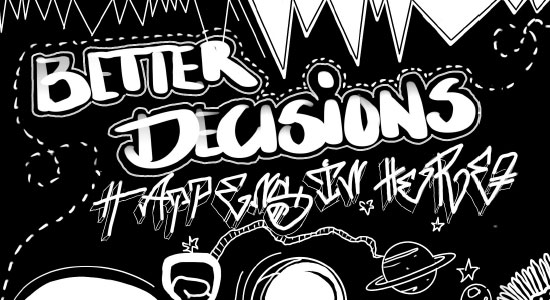
WEBINAR | 25. April | 11:00 Uhr
FUTURE -PROOF FP&A
Erfahren Sie in unserem Webinar mit Live-Demo, wie Sie Ihre Finanzplanung fit für eine erfolgreiche Zukunft machen!
Jetzt mehr erfahren
HEALTH CHECK
IST IHR BOARD-SYSTEM FIT? MACHEN SIE JETZT DEN HEALTH CHECK MIT BDG
Holen Sie bereits das Beste aus Ihrer Board-Lösung heraus? Mit dem bdg BI Health Check helfen wir Ihnen, diese Frage zu beantworten und mögliche Handlungsbedarfe zu identifizieren.
Jetzt mehr erfahren
Insights
PLANEN SIE IHR PROJEKT MIT BDG dem PARTNER OF THE YEAR!
Von automatisiertem Reporting über ganzheitliches Planen, Budgetieren und rollierende Forecasts bis zu Predictive Analytics und Machine Learning: Mit Jedox steht Ihnen eine flexible Business Intelligence- und Planungslösung zur Seite.
Jetzt mehr erfahren
Whitepaper
NEW WHITEPAPER!
RECONCILING FINANCE & HR
In Zusammenarbeit mit unserem Softwarepartner Jedox untersucht dieser Bericht die Personalplanung sowohl aus strategischer als auch aus taktischer Sicht und bietet Einblicke und einen Rahmen dafür, wie neue Realitäten sowohl vor Ort als auch in der Chefetage zum Leben erweckt werden.
Jetzt mehr erfahrenConsulting, Implementation & Support
Consulting, Implementation & Support
Excellence Workshops
Excellence Workshops
Application as a Service: bdg ONE
Application as a Service: bdg ONE
Trainings
Trainings
bdg#betterdecisionsgroup
bdg: Starten Sie mit uns die digitale Transformation Ihres Unternehmens! Business Intelligence und Enterprise Performance Management Tools eröffnen neue Dimensionen für Planung, Reporting und Analyse. Wir konzipieren, bauen und implementieren Ihre skalierbare Lösung und machen Ihr Team zu kompetenten Anwendern.
Unser Team aus Beratern und Branchenexperten vereint jahrelange Erfahrung, unzählige erfolgreiche Projekte und eine große Leidenschaft dafür, die beste Lösung für jeden Kunden zu finden. Kontaktieren Sie uns für ein erstes Gespräch oder eine individuelle Demo!
FIND
YOUR
SOLUTIONS
Game Changing
INSIGHTS

Kompetenzzentrum für Business Intelligence (BICC)
Sie planen in Ihrem Unternehmen die Implementierung eines Business Intelligence Systems und wollen sicherstellen, dass dieses auch bestmöglich genutzt wird? Dann sollten Sie neben professionellem Change Management und gründlichen Trainings der Nutzer auch über die Einrichtung eines Business.

Effiziente Dashboards – Tipps & Tricks
Ohne Dashboards geht in der heutigen Geschäftswelt nichts mehr. Dennoch gibt es gravierende Unterschiede in der Effizienz. Je nach Branche und Unternehmen unterscheiden sich die Anforderungen oftmals erheblich.
Deshalb gibt es auch kein Richtig oder Falsch, wenn es um die Gestaltung eines Dashboards geht.

Corporate Performance Management (CPM)
Wer eine Unternehmensstrategie gezielter verfolgen, die Leistungen der Firma oder einzelner Abteilungen genauer messen und ein Unternehmen insgesamt immer erfolgreicher steuern will, kommt heute kaum mehr am Corporate Performance Management (CPM) vorbei.

Predictive Planning – Näher an der Glaskugel
Die Unbeständigkeit der Märkte und des gesamten Unternehmensumfelds sind im Rahmen der Unternehmensplanung große Herausforderungen. Trends, kurze Innovationszyklen und die generelle Schnelllebigkeit der gesamten Gesellschaft erfordern unmittelbare Reaktionen auf veränderte Bedingungen.
UPCOMING
EVENTS
BUCHEN SIE
EINE DEMO
In einer Live-Demo zeigen wir Ihnen eine hochwertige Lösung auf Basis von bdg ONE. Gern besprechen wir vorab Ihre konkreten Anforderungen.
In der Live-Demo:
- Einblick in die Architektur einer Bi- & EPM-Lösung
- Wie bdg eine BI-/EPM-Lösung individualisiert
- Features, die bdg speziell für Ihre Branche entwickelt hat
- Wie ein typisches Projekt mit bdg abläuft
Wählen Sie einfach einen Termin; Sie erhalten Zugang zu einem digitalen Meeting-Raum – ein bdg-Mitarbeiter wird Sie dort begrüßen.
KARRIERE BEI
DER BDG
Du willst die Digitalisierung vorantreiben? Immer am Puls der Zeit sein? Mit Kunden Erfolge feiern? Super, wir nämlich auch.





